Coir Pith (Coco Pith / Cocopeat)
Coir Pith (Cocopeat / Coco Pith) is a natural, renewable by-product of the coconut husk, extracted during the processing of coir fiber. It is the soft, spongy material that binds the fibers within the husk and was once considered agricultural waste. Today, it is a high-quality growing medium widely used in horticulture, agriculture, potting mixes, nurseries, and hydroponic cultivation.
Coir pith is valued for its excellent water retention, aeration, and soil conditioning properties, making it a sustainable and eco-friendly alternative to conventional substrates like peat moss, perlite, and rockwool. Available in various forms such as coir pith blocks, briquettes, and 25 kg bales, it enhances root growth, improves soil texture, and supports healthy plant development.
As one of India’s leading coir pith manufacturers and exporters, Jayasree Coir Mills supplies premium-grade cocopeat products that meet global standards for clean, consistent, and sustainable growing solutions.
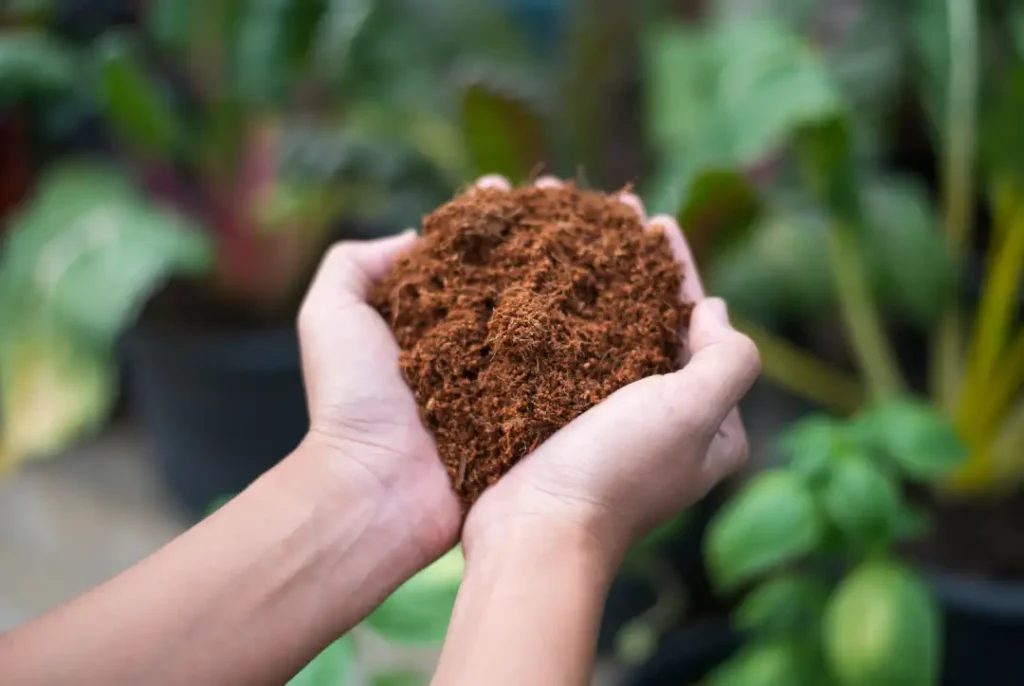
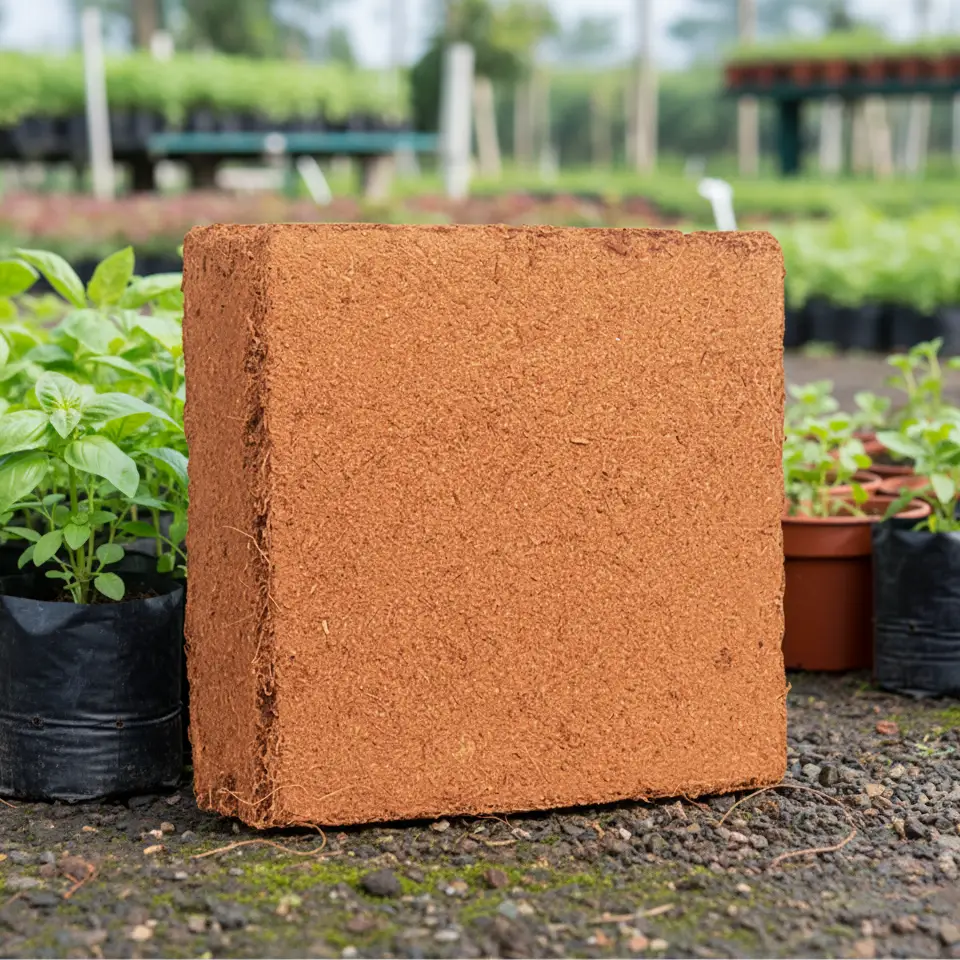
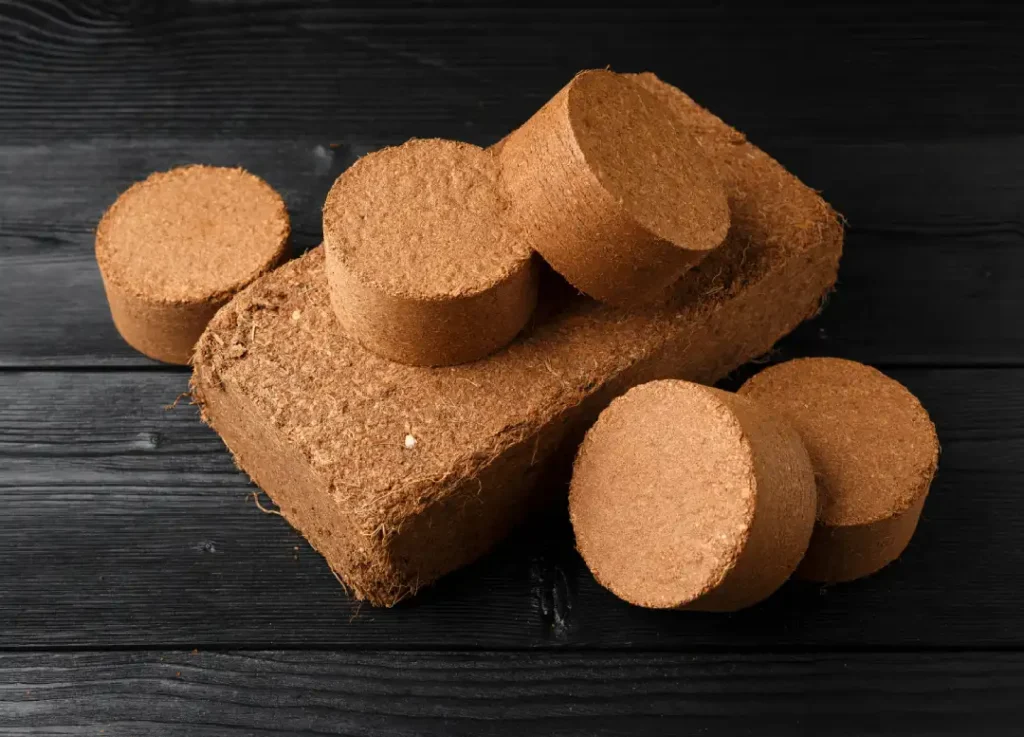
Why Choose Coir Pith?
Superior Moisture Retention
Coir pith can absorb and retain substantial amounts of water, supplying plants with a consistent water reservoir that reduces the need for frequent irrigation
Improved Aeration & Root Health
Its fibrous, porous structure allows air to reach plant roots even when moist, promoting healthy root growth and preventing anaerobic conditions.
Balanced (Nearly Neutral) pH
Coir pith is naturally near neutral in pH (typically between ~5.2 to ~6.8), making it compatible with a wide range of plants.
Lightweight & Easy Handling
Compressed blocks or bricks are compact for shipping, and when expanded they are very light, making them easier to handle than heavy soils.
Sustainable & Eco-Friendly
As a byproduct of coconut processing, coir pith uses materials that might otherwise go to waste—making it a renewable, more environmentally sound alternative to peat moss.
Biodegradable & Soil Improving
Over time, coir pith breaks down and integrates with the soil, enriching organic content and improving structure.
Better Soil Structure
Added to compacted or heavy soils, coir pith can loosen the texture, improve drainage, and reduce compaction.
Applications of Coir Pith
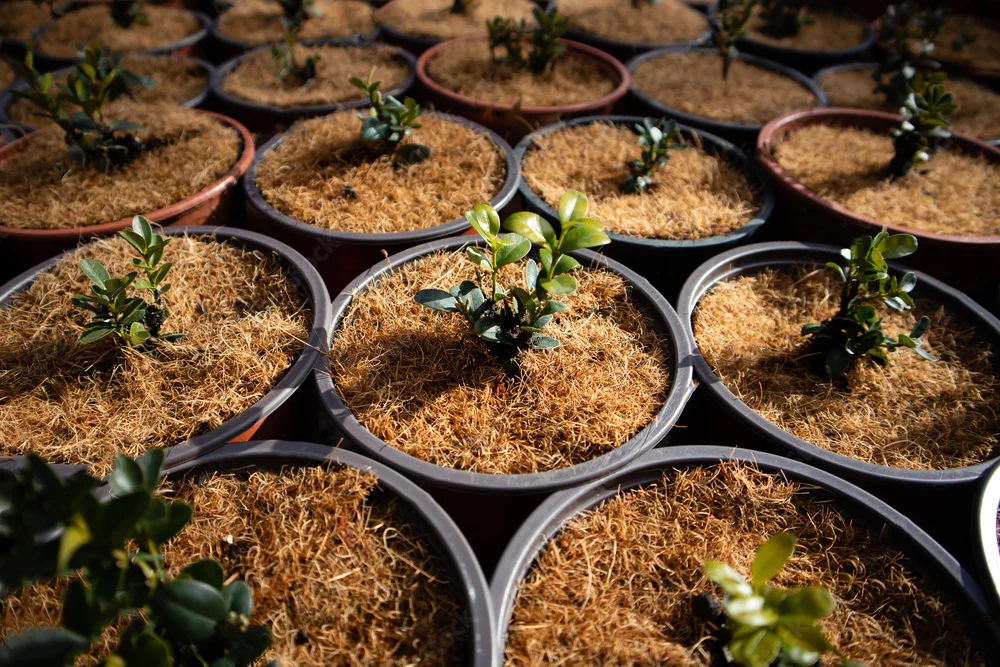
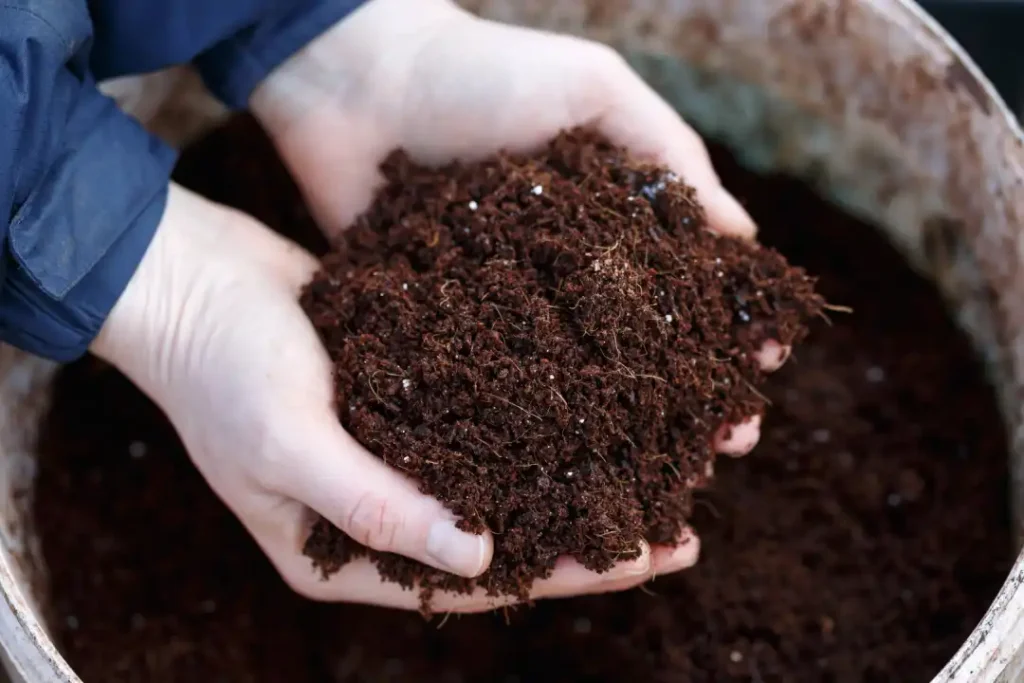
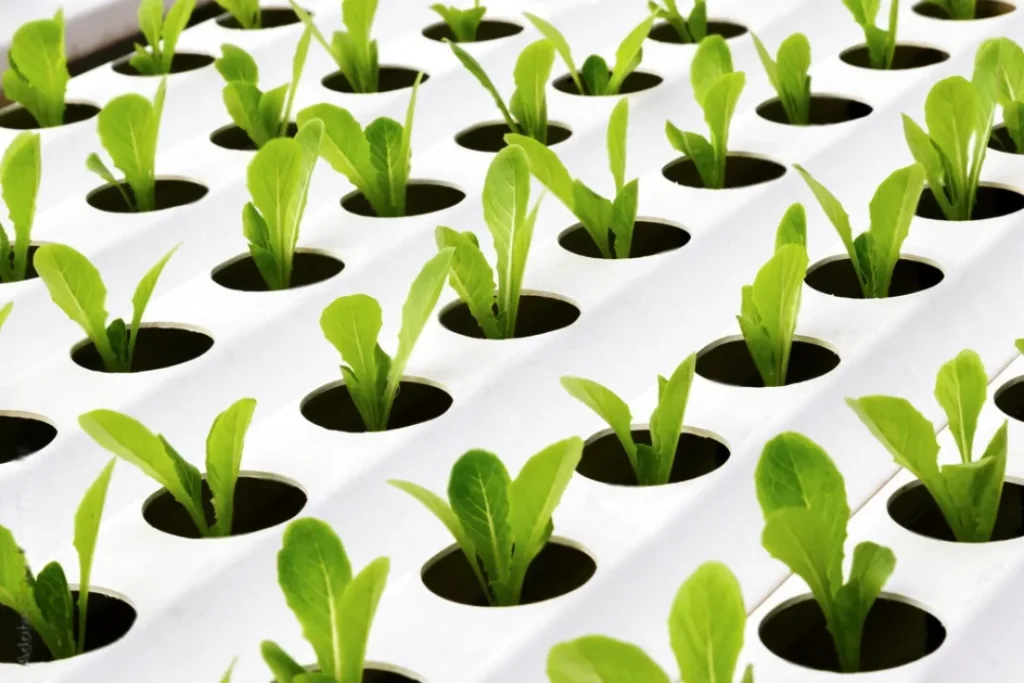
Coir Pith is highly versatile and can be used in many applications, including:
Horticulture & Gardening: As a seed starter, potting mix component, soil amendment to improve aeration, water retention, and drainage
Hydroponics & Soilless Systems: Coir pith supports roots, retains moisture, and holds nutrients—making it ideal for hydroponic cultivation
Mulching: As surface cover, it helps conserve soil moisture, moderate temperature, and suppress weeds
Soil Amendment / Conditioning: Enhances texture, drainage, and structure in garden beds and beds for shrubs, vegetables, etc.
Erosion Control & Slope Stabilization: Used in geotextiles or erosion control mats to prevent soil erosion on embankments or slopes
Composting Additive: Coir pith improves oxygenation and moisture control in compost piles. It can also be composted itself to yield enriched organic matter.
Mushroom Cultivation: Due to its high cellulose and lignin content, coir pith is useful as a substrate or supplement in mushroom growing.
Technical Specifications
Below is a comparative table showing common forms in which coir pith is packaged and their typical characteristics: (Low EC Cocopeat)
| Type | Blocks | Bricks | Polybag / Loose / Bulk |
|---|---|---|---|
| Size | 30 × 30 × 15 cm ± 2 cm | 20 × 10 × 5 cm ± 2 cm | 30 × 40 × 70 cm ± 5 cm |
| Weight | 5 kg ± 200 g | 600 g ± 50 g | 25 kg – 30 kg |
| Compression Ratio | 5 : 1 | 5 : 1 | 2 : 1 |
| Electrical Conductivity | < 0.5 mS/cm | < 0.5 mS/cm | < 0.5 mS/cm |
| pH | 5.2 – 6.8 | 5.2 – 6.8 | 5.2 – 6.8 |
| Expansion | 75 – 85 L | 8 – 9 L | ~200 L |
| Moisture Content | 10 – 15% | 10 – 15% | 30 – 40% |
| Particle Size | 6 mm, 8 mm, 10 mm, 12 mm | 6 mm, 8 mm | 6 mm, 8 mm |
| Loadability | 24 tons / 40 ft HC container | 24 tons / 40 ft HC container | 16 tons / 40 ft HC container |
| Drying | Sun drying | Sun drying | Sun drying |
Important Considerations & Best Practices
To get optimal performance from coir pith, here are some key best practices and caveats:
Desalination / Washing / Buffering
Raw coir pith often contains salts (especially sodium and potassium) which must be flushed or buffered (commonly with calcium) before use in sensitive plants.Nutrient Supplementation
Coir pith is relatively inert in terms of nutrients, so plants grown solely in coir require balanced fertilization.Reusability & Regeneration
With proper treatment (e.g. washing, pH adjustment), coir can sometimes be reused for multiple growing cycles.Gradual Decomposition
The breakdown of lignin and cellulose is slow; coir retains structure over time. However, as decomposition proceeds, additional organic matter or amendments may be beneficial.Quality & Source Control
Variability in coir quality, particle size, salt content, and processing methods can affect performance. Always source from reputable suppliers.Monitoring EC & pH
Regular testing of electrical conductivity (EC) and pH is necessary to maintain optimal growing conditions.Avoid Overwatering
Because coir holds water so well, overwatering can be a risk if drainage is inadequate.
Coir Pith is an eco-friendly, versatile, and sustainable growing medium that plays a vital role in modern agriculture and horticulture. With its excellent moisture retention, aeration, and neutral pH, it provides an ideal environment for healthy root development and robust plant growth. Whether used for seed germination, hydroponics, potting mixes, soil conditioning, or erosion control, Coir Pith offers reliable and long-lasting performance. As a trusted manufacturer and exporter of premium-quality Coir Pith from India, Jayasree Coir Mills is committed to delivering natural, biodegradable, and high-efficiency cocopeat products that support sustainable farming and green innovation worldwide.
Related Products
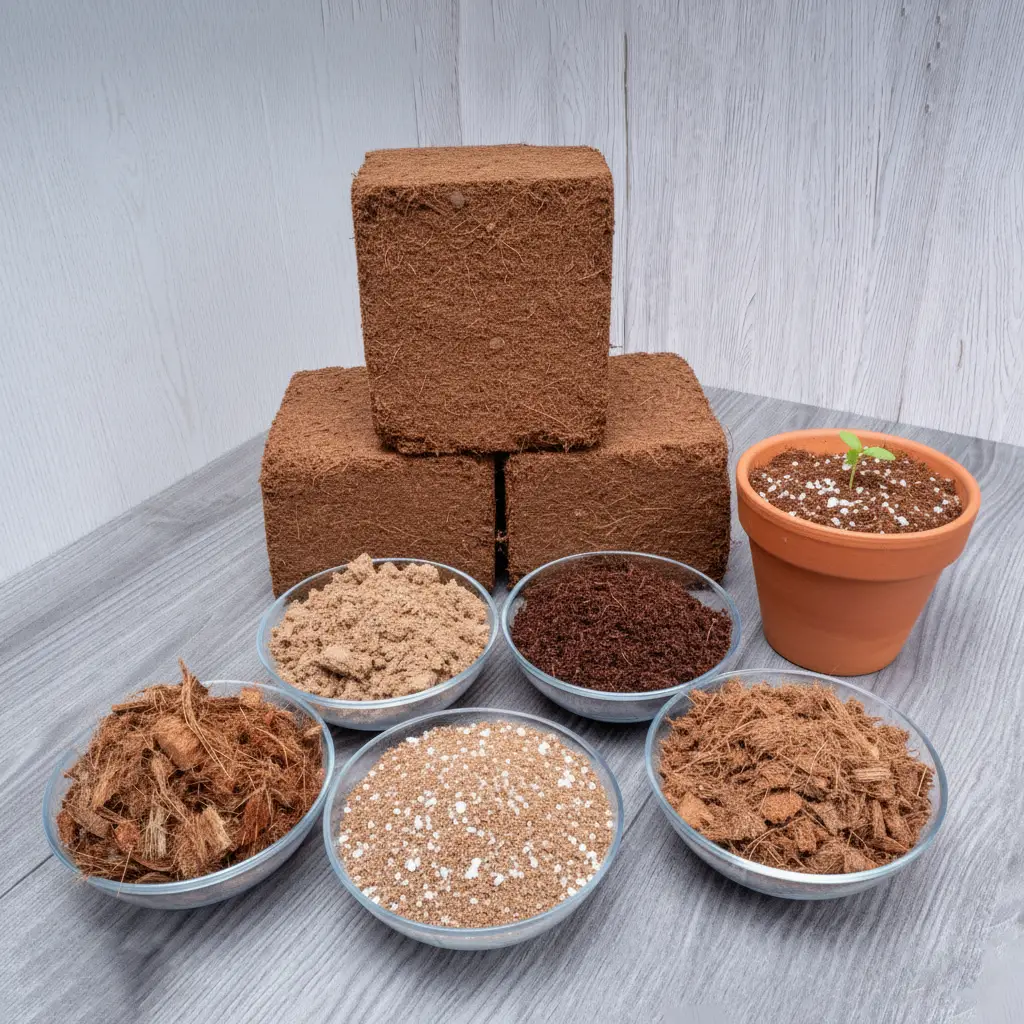
Horticulture Products
View our full range of various horticulture products here
